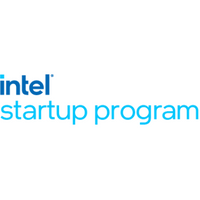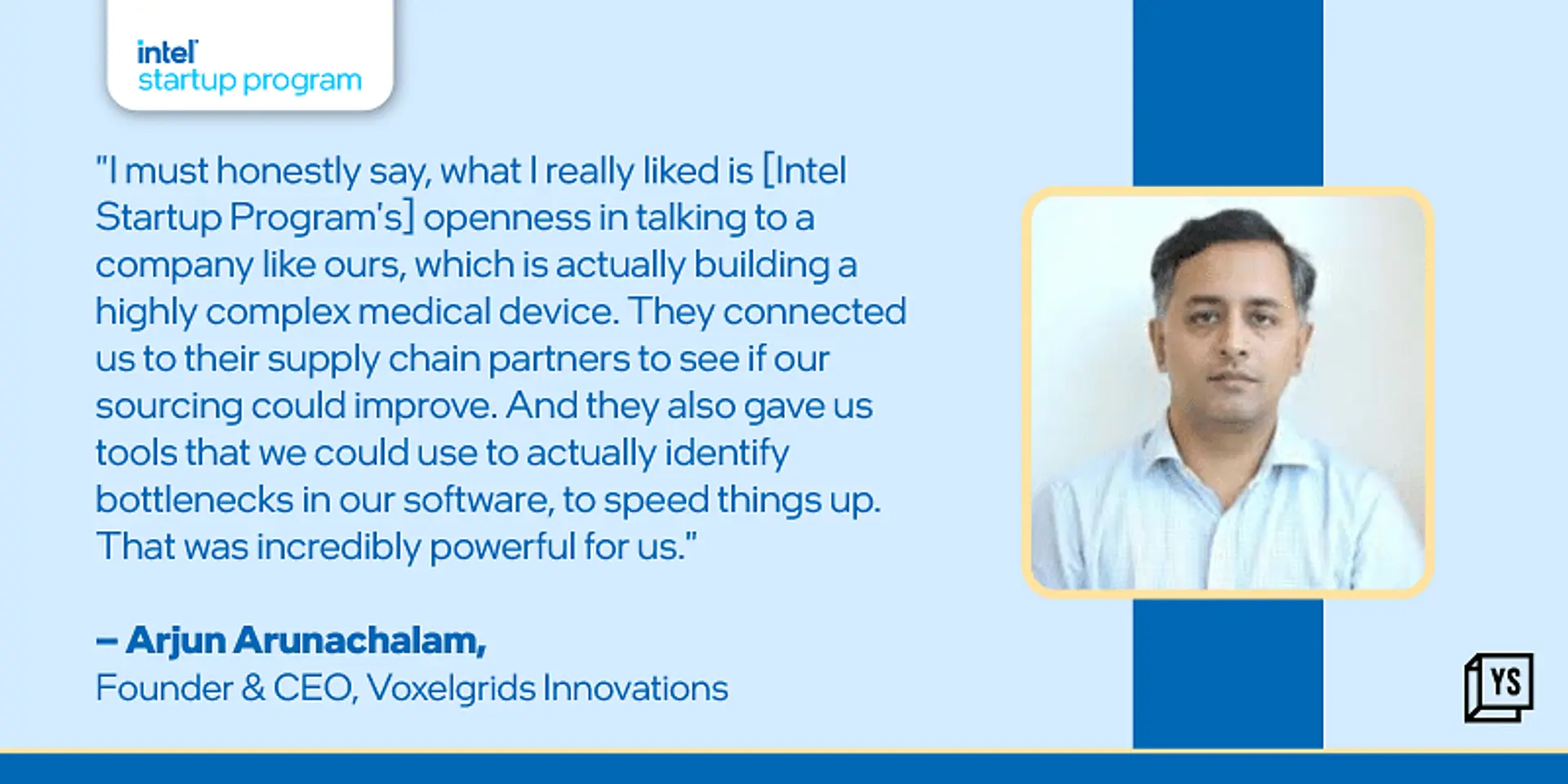
Intel Startup Program
View Brand PublisherBuilt by Intel Startup Program-backed Voxelgrids Innovations, this MRI scanner is helping make healthcare more accessible
Thanks to its innovative design, Voxelgrids’s MRI scanner is mobile, lighter, and more cost-effective than any other 1.5T scanner in the world in its class.
Access to quality healthcare is an issue that the world has faced for a while now, and with the healthcare industry seeing an acceleration in costs of nearly $600 billion in 2027 according to McKinsey — it could lead to even more affordability and accessibility challenges.
The need for affordable, accessible healthcare has never been more important, and one such company innovating in this space is Voxelgrids Innovations, which has developed the world’s lightest, full body 1.5T MRI scanner in its class.
Weighing in at around two tonnes — on par with most mobile CT scanners — the scanner is next-generation healthcare technology that utilises a new design to improve the overall efficiency. “When you own the entire engineering cycle, from conception to fabrication, there is a huge amount of synergy you can ensure from end to end. This allows you to customise the design to what you really want. The philosophy of owning everything in house results in a great deal of improved efficiency,” Arjun Arunachalam, Founder and CEO at Innovations says.
Design innovation
Voxelgrids’s scanner makes use of a smaller, more compact magnet that’s just as powerful as what’s available commercially, with an innovative electronics packaging around the magnet. This design allows for a smaller outer shell without compromising on the MRI’s bore [where the patient enters the machine], that remains the industry standard 60 centimetre-diameter cylindrical structure.
Another innovative feature on this MRI scanner is that it does not use any liquid cryogens to keep the machine cool, a staple with most other scanners of this scale. Instead, the scanner uses conduction cooling and has a compartment for liquid nitrogen, in case a rapid cooldown is required.
“In a nutshell, the compact design of the magnet — followed by innovative electronics packaging to make sure the patient doesn’t pay the price for compactness — while simultaneously resulting in lower energy being stored in the magnet. This allows us to eliminate liquid helium and reduces a lot of the compartments inside, such as stainless steel vessels, which are typically used in other magnets. This makes it lightweight and the absence of liquid helium makes it mobile,” Arjun explains, adding, “You can drive it around wherever you want to, scan people, and send data to a centralised location where the images can be studied by radiologists. So the hub-and-spoke model becomes a reality with this system.”
Moving back to move forward
Arjun’s interest in MRI technology began when he moved to the U.S. to pursue a Master’s degree in electrical engineering, where he met a professor that introduced him to the field. “Once I got into that field, I realised that I needed to invest in the long term to learn this technology. And I always had the desire to come back home and stay here. So once I decided to come back to India, I wanted to do something on my own,” Arjun says.
After onboarding his core team in 2016, Arjun setup Voxelgrids in March, 2017 and approached Tata Trusts, who connected the company with Social Alpha, who in turn incubated and funded the team. Designing the scanner in partnership with the Indian Institute of Science, two of Voxelgrids’s prototype scanners have already been deployed and a third is on its way.
Arjun adds that the response they’ve seen from our clinical partner so far has been “superb”. “They've been extremely happy with how good the system is looking. In terms of power consumption, in terms of maintaining the system, in terms of just being able to use it, they are incredibly happy with what we are showing them. They feel that this is a highly innovative system that could be extremely powerful for them,” Arjun says, adding that the company is one licence away from mass production, which they would be submitting soon.
Intel inside
Using Intel’s products for the MRI scanner’s precision electronics — data acquisition system and transmission system — it was no surprise that the company soon partnered with the Intel Startup Program to help scale their solution. “Because we were using a lot of their hardware and we have gigabytes of data flowing through it, we really wanted some specific expertise to help speed up the reconstruction of data. When Intel approached us, we felt it was very synergistic and we really needed that kind of domain expertise,” Arjun says.
Rajesh Jayaram, Principal Engineer and Platform HW Architect at Intel, and Voxelgrids’s mentor, says that the company’s revolutionary dry magnet technology for MRI scanners was an exciting development for the healthcare industry. “Their technology helps to reduce the weight, power consumption, and cost of the machine way better than conventional MRI machines. I had the opportunity to visit the Voxelgrids office and discuss the design details with Arjun and his highly passionate engineering team. We went through the design of each module and discussed the data flow, bottlenecks in the implementation, and possible improvement options. I am sure their technology could revolutionise the MRI Market and probably improve affordability for these tests too,” Rajesh says.
Arjun adds that since their partnership began earlier in 2022, the program has been extremely helpful for Voxelgrids, with the mentors understanding their problem statements and nudging them in the right direction to find solutions. “I must honestly say, what I really liked is their openness in talking to a company like ours, which is actually building a highly complex medical device. Rajesh came down and looked at everything we were doing. They connected us to their supply chain partners to see if our sourcing could improve. And they also gave us tools that we could use to actually identify bottlenecks in our software, to speed things up. That was incredibly powerful for us,” Arjun says.
To the world
With most of the team having sound technical skills, Arjun says that Voxelgrids’s focus now would be to expand on their sales and service operations. “We would love to be able to do the heavy lifting on the manufacturing, installation, service, maintenance, and all of that, and have someone else work on the commercial side of it. So that’s our immediate objective. In the long term, of course, we intend to come up with more highly innovative, mobile platforms,” Arjun says.
The Intel Startup Program: Enabling startups to scale their game-changing innovations
The Intel Startup Program is Intel India’s flagship program to engage with technology startups who have an IP or innovative solutions that have the potential to create impact on customers and align with Intel's focus areas. The program is at the forefront of engaging with India’s startup ecosystem through high impact collaborations with the industry, academia and government, and runs multiple initiatives that are either vertically aligned or focused on emerging technologies.
It engages with startups that have a unique global or local value proposition to solve genuine customer problems, enabling them with domain and business expertise from the industry and mentorship from Intel.







![[Funding alert] Children's nutrition brand Zingavita raises Rs 3 Cr from Anicut Angel Fund](https://images.yourstory.com/cs/2/b87effd06a6611e9ad333f8a4777438f/funding-3-1613101382075.jpg?mode=crop&crop=faces&ar=1%3A1&format=auto&w=1920&q=75)